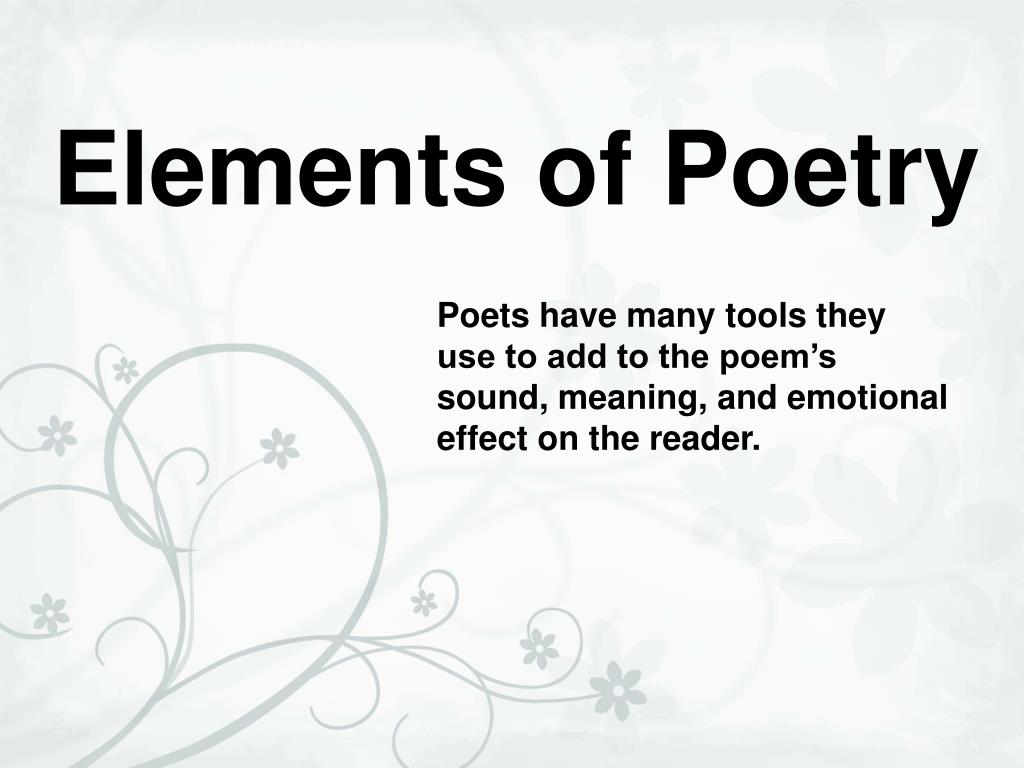God's Grandeur
The world is charged with the grandeur of God. (A)
It will flame out, like shining from shook foil; (B)
It gathers to a greatness, like the ooze of oil (B)
Crushed. Why do men then now not reck his rod? (A)
Generations have trod, have trod, have trod; (A)
And all is seared with trade; bleared, smeared with toil; (B)
And wears man's smudge and shares man's smell: the soil (B)
Is bare now, nor can foot feel, being shod. (A)
And for all this, nature is never spent; (C)
There lives the dearest freshness deep down things; (D)
And though the last lights off the black West went (C)
Oh, morning, at the brown brink eastward, springs — (D)
Because the Holy Ghost over the bent (C)
World broods with warm breast and with ah! bright wings. (D)
Gerard Manley Hopkins
( )-Rhyme scheme- rhyming pattern created at the end of poetry lines.

 Born at Stratford, Essex, England, on July 28,
1844.
Born at Stratford, Essex, England, on July 28,
1844. He became a catholic priest in 1867.
He became a catholic priest in 1867. Hopkins became estranged from his Protestant
family when he converted to Roman Catholicism. Upon deciding to become a
priest, he burned all his poems and did not write again for many years. His
work was not published until 30 years after his death when his friend Robert
Bridges edited the volume Poems.
Hopkins became estranged from his Protestant
family when he converted to Roman Catholicism. Upon deciding to become a
priest, he burned all his poems and did not write again for many years. His
work was not published until 30 years after his death when his friend Robert
Bridges edited the volume Poems.
The poem is an example of an Italian/ Petrarchan Sonnet. For more information click this link:
Questions
2. According to the poem, what do people fail to understand about nature?
3. How does Hopkin's praise of nature relate to the praise of God?


